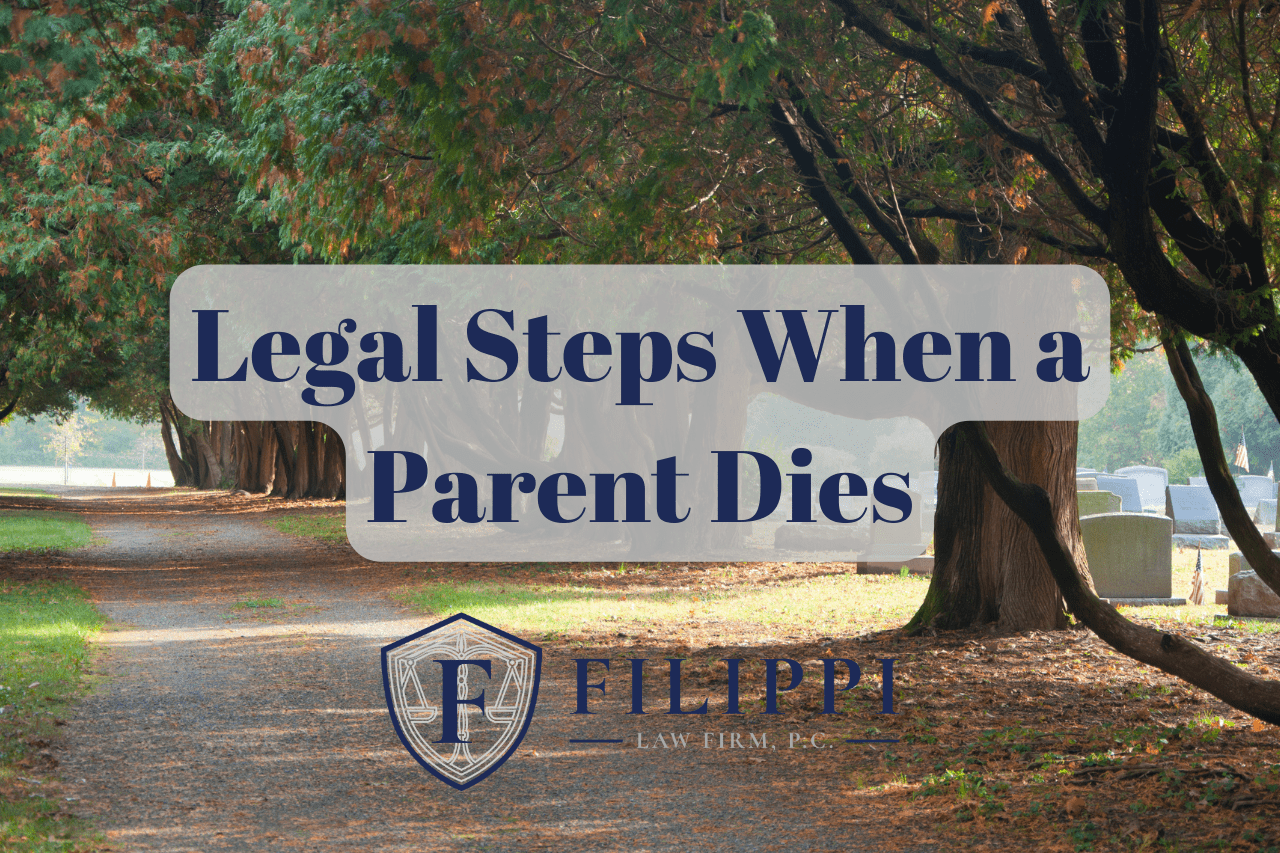One of the most difficult parts of life is losing a loved one. It’s never easy to say goodbye, regardless of how prepared we think we are. The days and weeks that follow the death of a loved one can be unbearably painful and everyone grieves differently.
Having a list of what to do when a loved one passes away can be helpful. We created this guide to help you navigate this challenging time.
Get a Free Consultation Today
What to do when someone dies
There are a few things you should be ready to do if you are in charge of a deceased loved one’s affairs. Each of the processes below may vary slightly depending on the circumstances but the general process is the same. If you are a successor trustee, you have the responsibility and authority to conduct business on behalf of the trust.
- Notify family members and friends.
Contact close family members and friends to inform them of the loss and share any essential details.
- Make arrangements for children and pets.
Ensure the well-being of dependents by arranging for their care and support. Arrange for the care of any pets left behind, either by family or through appropriate services.
- Give yourself time to grieve.
Allow yourself the necessary time and space to process and cope with the emotional impact of the loss. Seek support from friends, family, or a counselor. You do not need to immediately jump into legal proceedings.
- Stop benefits and do not cash any benefit checks that arrive after the date of death. Return any benefits received after the date of death.
- Social Security Administration
- Veterans Administration (Note: Veterans may be entitled to burial and memorial benefits.)
- Remove valuables from the home and store them in a secure, insured location.
- Obtain death certificates.
Request ten original, certified copies of the death certificate. These certificates will be required for various legal and administrative purposes.
- Call the insurance company to confirm that the home is insured if it is vacant.
- Fire insurance
- Flood insurance
- Homeowner’s insurance
- Consider changing the locks on the home and installing cameras to monitor it.
- Cancel credit cards and charge accounts. Cancel all subscriptions and monthly service agreements. Ask for a refund, if applicable.
- Secure assets and carry out other related tasks.
Identify and secure important documents, including wills, financial records, and insurance policies. Notify relevant institutions, such as banks, insurance companies, and government agencies.
- Make arrangements for funeral plans.
Plan the funeral or memorial service; consider your loved ones wishes and cultural or religious practices.
- Carry out your loved ones wishes.
Execute any specific requests or wishes that you know of, if they were documented.
- Legal Steps When a Parent Dies with an Estate Plan
- Do not remove contents from a safe-deposit box owned by the Trust unless you are the successor Trustee; otherwise, the contents must be inventoried in the presence of a bank officer before removal.
- Determine the immediate cash needs of each beneficiary and the immediate expenses that must be paid. Identify accounts with cash you can access.
- Gather the decedent’s personal records, including checkbooks, bank statements, cancelled checks, and at least three years of income tax returns.
- Contact individuals who owe money to the decedent and arrange for collection.
- Gather all life insurance policies, including those obtained through alumni associations, travel clubs, credit card companies, trade associations, etc.
- Terminate employment of domestic help, security guards, or any other assistants the decedent, a dependent, or a beneficiary no longer need.
- Hire domestic help, security guards, or any other assistants a dependent or beneficiary now needs.
- Consult with an attorney to understand and execute the legal steps outlined in the estate plan. An estate planning attorney will guide you through the process and handle legal proceedings. They will address the distribution of assets, ensure that your loved ones wishes are followed and help answer any questions you may have about the process or the estate plan itself.
- Legal Steps When a Parent Dies Without an Estate Plan
Passing without an estate plan will most likely involve probate court proceedings and adhering to intestacy laws for the distribution of assets. Probate can be a long legal process, best handled by an attorney.
Losing a parent is a challenging time. An estate planning and probate attorney can help make this time just a little bit easier. Reach out to the Filippi Law Firm in California to facilitate your life during these trying times.
Filippi Law Firm, P.C., provides legal services in estate planning, probate, trust administration, and trust litigation in the greater Sacramento area and Placer County, with a focus in Rocklin, Roseville, Lincoln, and Granite Bay. Give us a call at (916) 333-7910 or fill out the contact form to get in touch with our office. Consultations are free, and they can be done over the phone, via Zoom, or in person at our office in Rocklin.




